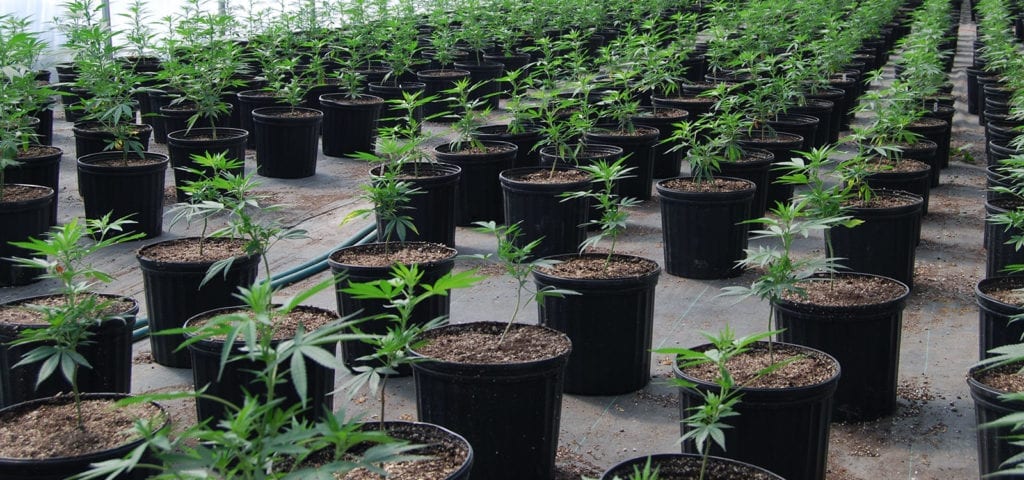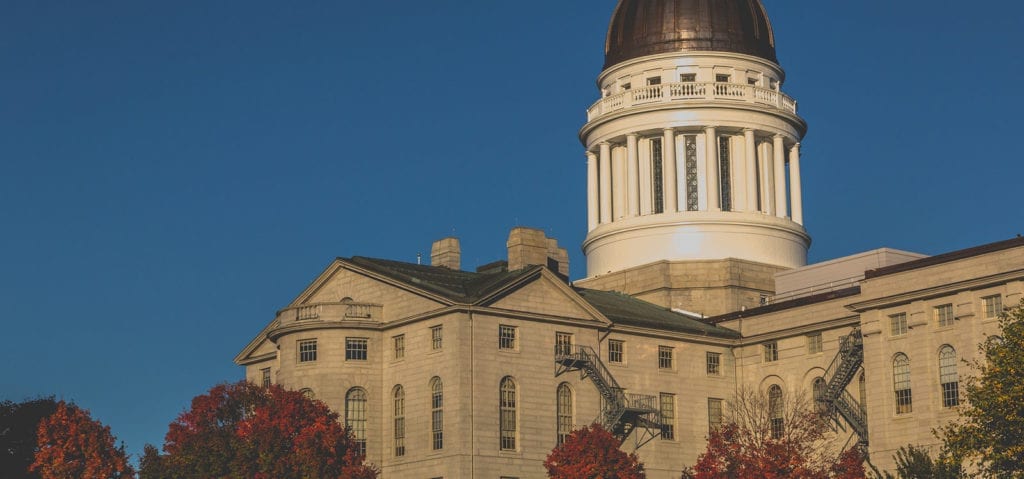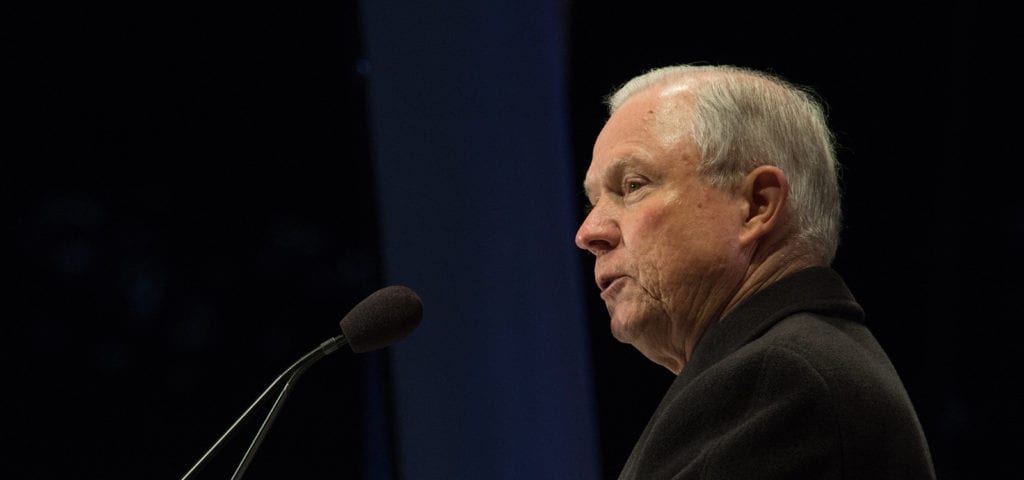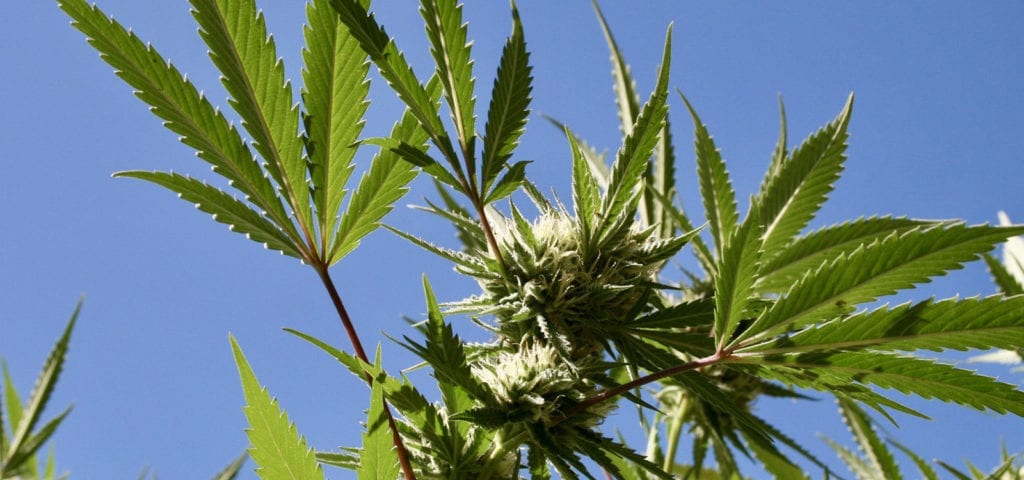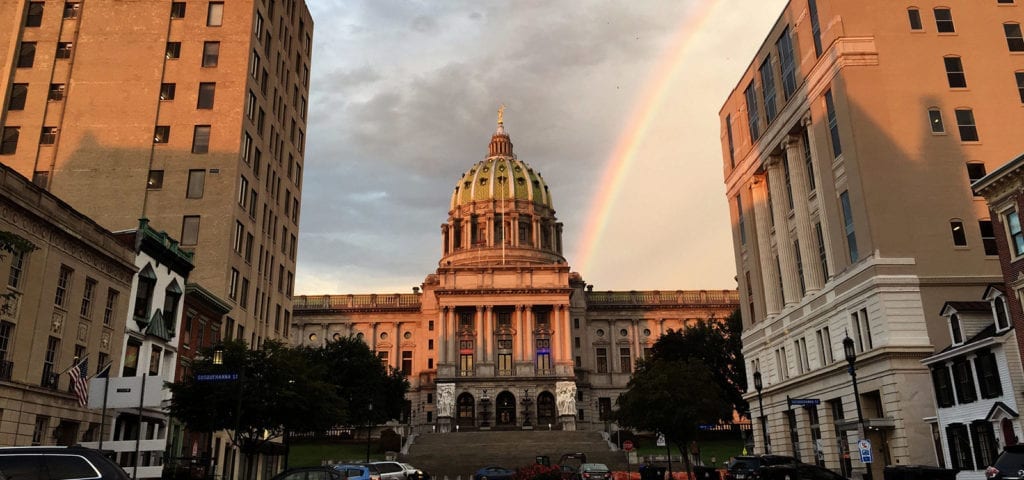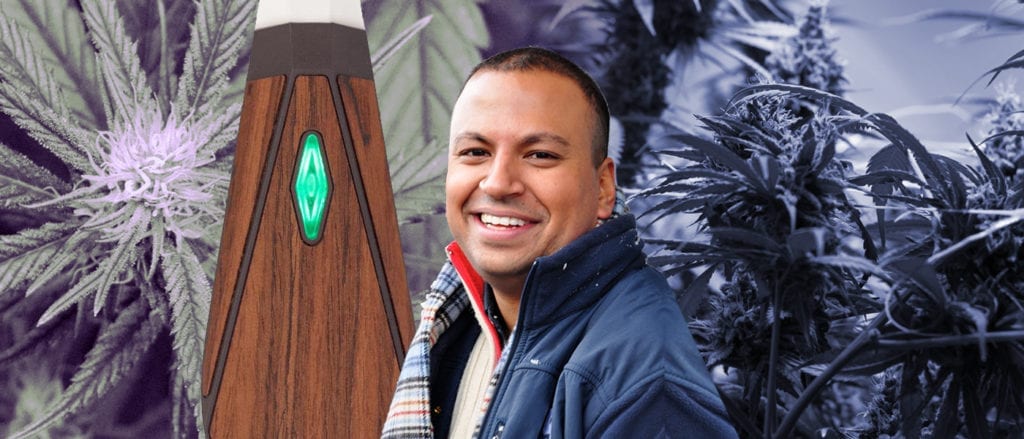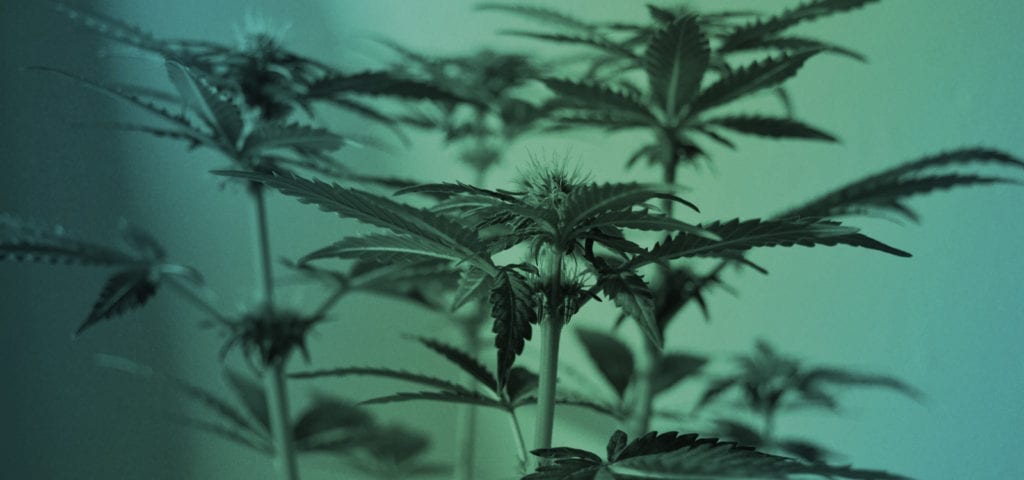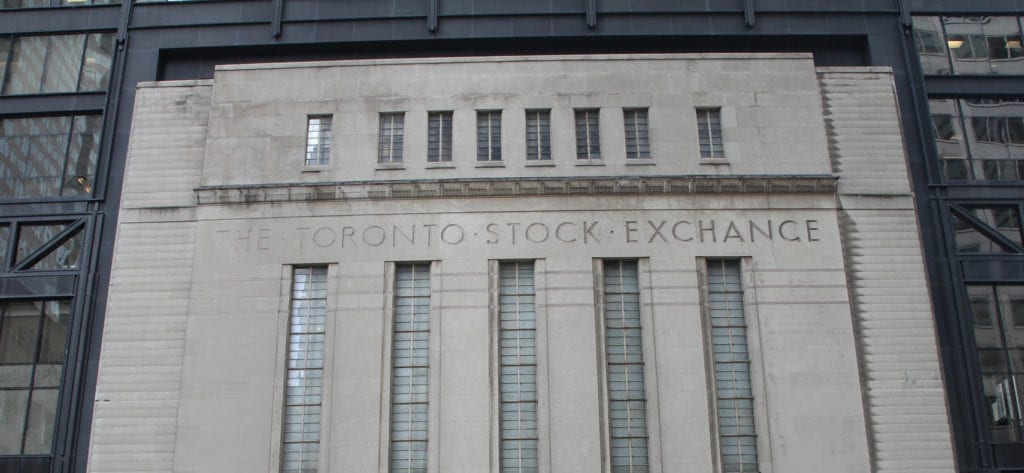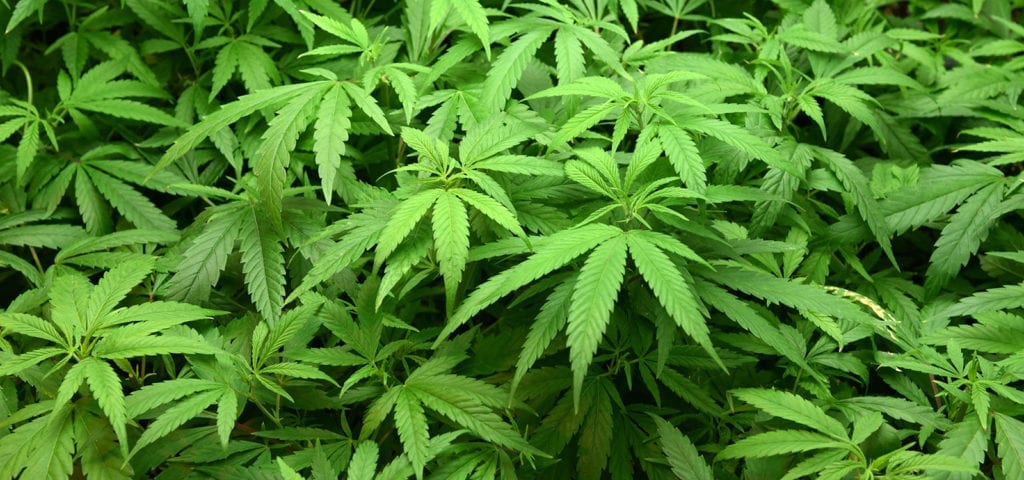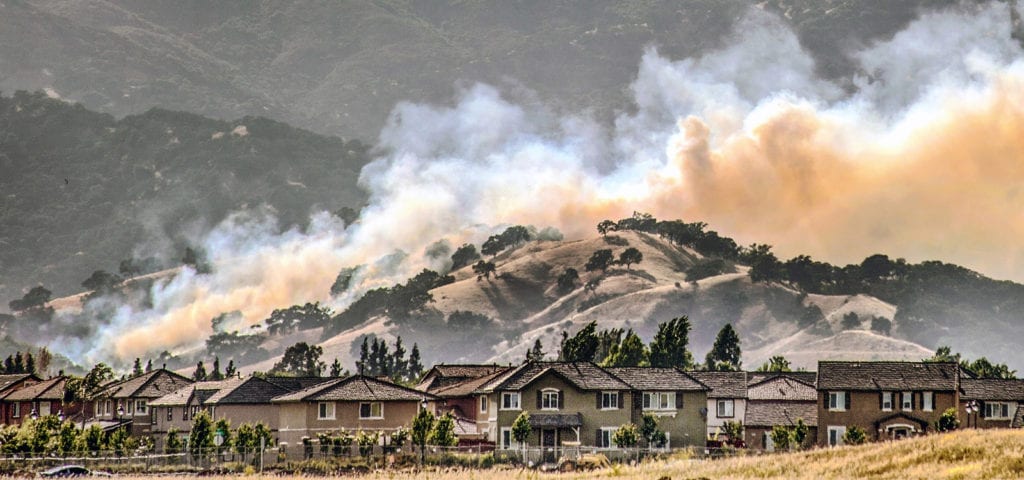The opioid overdoses death toll is staggering – reaching 64,070 in 2016 – and at least one estimate suggests opioids could kill a half-million Americans in the next decade. According to the Centers for Disease Control, deaths from “synthetic opioids excluding methadone” more than doubled from 9,945 in Jan. 2016 to 20,145 in Jan. 2017. So-called “natural and semi-synthetic opioids” also killed more people from year-to-year. In Jan. 2016, such products (i.e., pharmaceuticals) killed 12,726 Americans; in Jan. 2017, that number increased to 14,427. Deaths from heroin also increased from 13,219 in Jan. 2016 to 15,446 in Jan. 2017.
Meanwhile, cannabis hasn’t killed a single human being in all recorded history, yet remains listed alongside heroin as a Schedule I drug – one with “no currently accepted medical use and a high potential for abuse.” Despite this classification, which the Drug Enforcement Agency claims also includes the non-psychoactive cannabinoid CBD, the agency in March approved Syndros – a synthetic cannabinoid drug developed by Insys Therapeutics – for Schedule II designation.
Insys also produces Subsys, a sublingual spray containing fentanyl, an opioid so powerful the top DEA Agent in New England called it “manufactured death.”
“Whatever can be likened to a weapon of mass destruction and the effect it has on people, it’s fentanyl,” Special Agent Michael Ferguson said in a July interview with the Boston Globe.
And say what you will about the DEA and their war against cannabis, which costs taxpayers at least $18 million annually, but by all accounts the agency did want to crack down on illicit opioid distributors and markets – and federal lawmakers not only stood in their way but passed legislation to keep the pipelines and pill mills open.
Congress beholden to Big Pharma
Insys, who donated $500,000 to the anti-legalization campaign Arizonans for Responsible Drug Policy during the 2016 election, was accused in June by former sales rep Patty Nixon of forcing her to lie to boost Subsys sales. In an interview with NBC News, Nixon claimed that her supervisor told her ways to trick insurers into believing the approvals were “medically necessary” and went so far as to wholly falsify oncology records and provide insurance companies with specific diagnoses whether the patient had the condition or not.
In their defense, Insys said in 2015 and 2016 Subsys prescriptions comprised less than .04 percent of all opioids in those years, but the company sold nearly $1 billion worth of the drug over the last five years — $240 million worth in 2016 alone.
“Accordingly, Insys does not believe it (or its fentanyl product Subsys) has contributed to the national, opioid epidemic in any material way,” the company said in a June 4 statement. “…Insys strives to play a meaningful role in providing solutions to address the opioid epidemic by leveraging its expertise in drug development and in developing innovative products.”
Despite the claims of the former sales rep, no action was taken against Insys, and a recent 60 Minutes and Washington Post investigation has brought to light perhaps why pharmaceutical companies are able to thwart enforcement with such impunity. In an interview with 60 Minutes, Joe Rannazzisi, the former head of the DEA Office of Diversion Control, dropped a bombshell – Congress legislatively tied the hands of their law enforcement arm when it comes to opioids.
“This is an industry that allowed millions and millions of drugs to go into bad pharmacies and doctors’ offices, that distributed them out to people who had no legitimate need for those drugs,” Rannazzisi said in the interview.
Legislatively, according to the former DEA special agent-turned-whistleblower, lawmakers heeled the agency with S.483. The measure, titled “Ensuring Patient Access and Effective Drug Enforcement Act of 2016” was sponsored in the Senate by Sen. Orrin Hatch, a Republican from Utah who, oddly enough, introduced the “Marijuana Effective Drugs Studies” – or MEDS – Act earlier this month.
When introducing the MEDS Act on the Senate floor, Hatch pointed to the opioid epidemic as evidence that more federal cannabis research is needed, vis a vis, lawmakers need to pass his bill and begin to look at medical cannabis as an alternative to opioids. “Because Utahns have watched their family members, friends, and neighbors grapple with this epidemic, many are seeking non-narcotic alternatives that can help with pain,” Hatch said in his remarks. “Medical marijuana is just one such alternative. And after careful, deliberative thought, I’ve concluded that it’s an alternative worth pursuing.”
While Hatch is responsible for the passage of S.483 in the Senate, it was championed in the House by Rep. Tom Marino, who was nominated by President Donald Trump to head the Office of National Drug Policy Control and advise the president on drug policy issues.
According to the bill text, the measure “revises and expands the required elements of an order to show cause issued by the DEA before it denies, revokes, or suspends a registration for a Controlled Substances Act violation. An order to show cause must specifically state the legal basis for the action and notify the registrant of the opportunity to submit a corrective action plan.” Effectively, it makes it nearly impossible for the DEA to halt suspicious drug shipments from companies – and the pharmaceutical industry spent more than $102 million related to the act and other pro-industry legislation between 2014 and 2016, according to the Washington Post report.

Two days after the 60 Minutes and Post stories were public, President Trump would announce, via Twitter, that Marino had withdrawn his name from consideration for the post. Hatch called the reports “flawed” and “one-sided” and defended both the legislation and his role in its passage in his own series of tweets.
“First, background: This bill is about process and defining rules. Congress, the President, DEA and [Department of Justice] all agreed this change was necessary,” Hatch’s initial post reads. “Second, the Post ignored that this bill received support from patient groups who were concerned about DEA’s unfettered enforcement authority.”
He added that the bi-partisan measure passed by “unanimous consent” and that neither the DEA nor Justice Department urged then-President Barack Obama to veto the measure and concluded that the “DEA and DOJ had a number of tools at their disposal to stop this bill from becoming law. They did not use any of them.”
It’s worth noting that the “unanimous consent” procedure is usually reserved for legislation deemed noncontroversial and, when used, individual votes are not recorded. Michael Botticelli, head of the White House Office of National Drug Control Policy at the time the bill was passed, told the Post that officials “deferred to the DEA, as is common practice” regarding the measure.
“The drug industry, the manufacturers, wholesalers, distributors and chain drugstores, have an influence over Congress that has never been seen before,” Rannazzisi said in the Oct. 15 interview. “I mean, to get Congress to pass a bill to protect their interests in the height of an opioid epidemic just shows me how much influence they have.”
Cannabis’ role as an ‘exit-drug’
In May, the federal National Institute on Drug Abuse, a division of the National Institutes of Health, updated their website to reflect NIDA research on the effects that legalizing medical cannabis has on prescription opioid use. According to the new section, one study found a link between medical cannabis legalization and “a reduction in overdose deaths from opioid pain relievers, an effect that strengthened in each year following the implementation of legalization.” The second study, in partnership with the RAND Corporation, found that legal access to medical cannabis dispensaries “is associated with lower levels of opioid prescribing, lower self-report of nonmedical prescription opioid use, lower treatment admissions for prescription opioid use disorders, and reduction in prescription opioid overdose deaths.”
The results of both studies seem to be reinforced by an analysis titled “Recreational Cannabis Legalization and Opioid-Related Deaths in Colorado 2000-2015,” published this month in the American Journal of Public Health, which purports that cannabis legalization in Colorado has led to a 6.5 percent decrease in opioid-related deaths – or .7 percent fewer opioid deaths per month.
“This reduction represents a reversal of the upward trend in opioid-related deaths in Colorado,” the authors concluded.
Despite the promising results, Dr. Larry Wolk, the executive director of the Colorado Department of Public Health and Environment, told the Denver Post that “anything that does get published at this point should be considered preliminary data.”
“It just hasn’t been in place long enough,” Wolk said, referring to legalized cannabis, in the report.
To its credit, the NIDA is continuing to explore the possible role of cannabis as a tool in stemming the opioid crisis. In August, the agency announced they had awarded a $3.5 million grant to the Einstein College of Medicine and Montefiore Health System for a long-term study on the topic. The institutions will partner with Vireo Health of New York on the project.
Ignoring the signs
But rank-and-file lawmakers, both Republicans and Democrats, continue to act with total disregard to the potential role of cannabis as an opioid exit-drug – if they are not wholly complicit in stoking the fires of the crisis. The so-called “Ensuring Patient Access and Effective Drug Enforcement Act of 2016” certainly ensured patients – and street-level dealers; and teenagers; and children; and my friend Pat; and Prince – could access deadly laboratory-tested, produced-legally-by-legit-tonnage narcotics.
Population of 33,000? Here’s 9 million hydrocodone pills — that’s 273 pills per person over two years and Congress hadn’t even tied the DEA’s hands yet.
Deputy Attorney General Rod Rosenstein indicated the Justice Department plans on reviewing whether to seek a repeal of the now-infamous legislation. “I’m very concerned about it,” he told USA Today.
Rep. Ann Kuster, a Democrat from New Hampshire, last Thursday introduced a measure to repeal S.483. “We know that the opioid crisis has in part been fueled by the over prescribing of opioid pain medications and any limitations on the DEA’s ability to get unneeded prescription drugs off the street must be eliminated,” she said in a statement announcing the bill’s introduction.
Meanwhile, cannabis continues to – anecdotally and empirically – show that it can be used as a potential opioid exit-drug. HelloMD, a cannabis telemedicine company and online community, has twice surveyed their patients and have each time found cannabis helped them reduce or quit their use of pharmaceutical drugs.
A HelloMD collaboration with the University of California Berkeley published in June found that 97 percent of 3,000 participants “strongly agreed” or “agreed” they could decrease their opioid use when using cannabis. In August, research with Brightfield Group found CBD alone allowed 42 percent of respondents to quit using traditional medications; 35 percent of those used prescription painkillers.
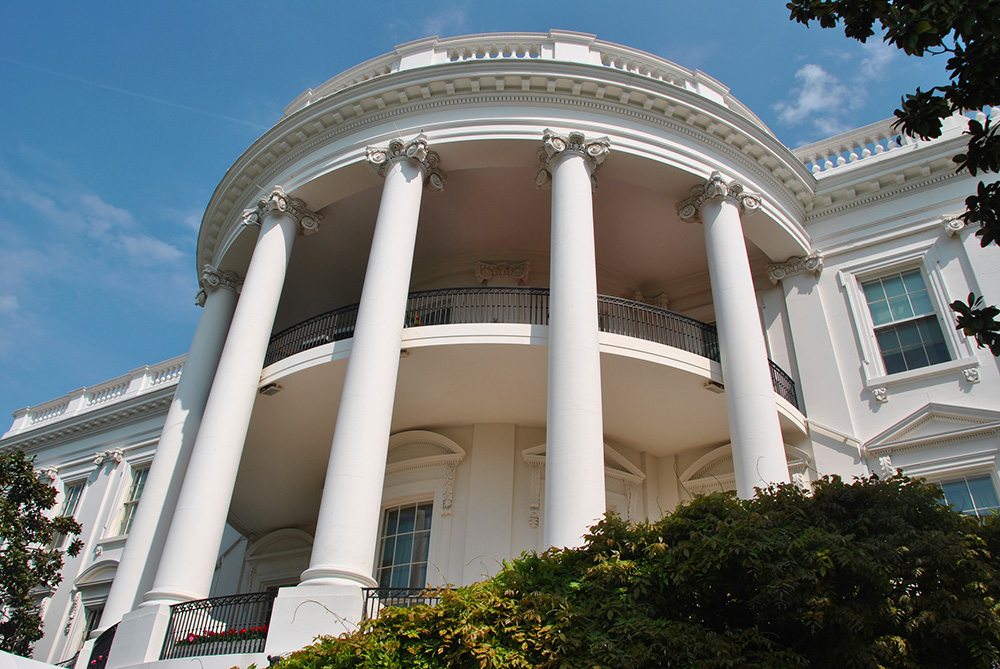
And when President Trump formed his commission to attempt to address this epidemic, who did he choose to chair his opioid commission? New Jersey Gov. Chris Christie – a staunch prohibitionist who barked he would “never” allow legalization while governor. And what has Christie done in his role as chairman? Met several times with pharmaceutical executives, promising them “a good networking opportunity.” The commission did, however, release an interim report in March urging the Executive Branch to “instruct the NIH to begin to immediately work with the pharmaceutical industry” to develop “new, non-opioid pain relievers” and “Medication-Assisted Treatment.”
There is no instruction to consider cannabis …
- despite the recent NIH-backed research.
- despite a 2016 study by researchers in Michigan that found 64 percent lower opioid use in patients with chronic pain who used medical cannabis.
- this study from April that found 76.7 percent of New England dispensary members were able to reduce their opioid use since starting medical cannabis treatments.
- this 2015 study of 473 Canadian adults of which 80.3 percent reported using cannabis as a substitute for prescription drugs.
- this study, also from April, that found a reduction in opioid-related hospitalization between 13 percent and 23 percent in states with medical cannabis programs.
And yet, in light of the growing evidence that cannabis could mitigate damage from the opioid crisis, this administration’s so-called opioid commission made not one reference to cannabis in their report – but they did suggest partnering with the very companies that not only create these pills but essentially paid off members of Congress to pass a bill (they wrote) preventing the DEA from blocking suspicious shipments of opioids.
Sadly, state officials are no better in most cases. In June, New Mexico Health Secretary Lynn Gallagher rejected a proposal by the state Medical Cannabis Program advisory board to add “opioid-use disorder” to the state’s medical cannabis qualifying condition list. Opioid-use disorder was also approved by the state legislature to be added to the regime in April, but that measure was vetoed by Republican Gov. Susana Martinez. According to the state Department of Health, 497 New Mexicans died from opioid-related drug overdoses in 2016, or 24.8 deaths per 1,000 residents.
Martinez’ reasoning for vetoing the proposal? There “appears to be little if any medical literature that actually addresses the effect of cannabis usage on persons with a diagnosed opiate use disorder,” she wrote in her veto message.
According to Leafly’s comprehensive list of medical cannabis qualifying conditions by state, not a single one allows individuals with opioid-use disorder to qualify for medical cannabis.
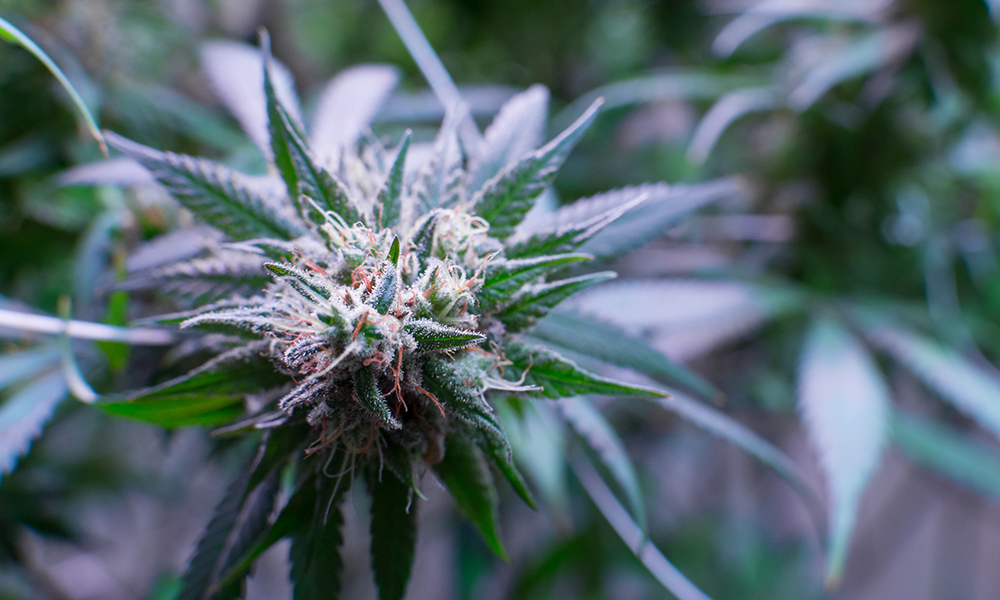
What are policy-makers doing?
The short answer is not much. Hatch’s bill would open up research avenues, but without a federal medical cannabis program, state regimes are the law of the land.
New Jersey Sen. Corey Booker introduced the Marijuana Justice Act in August – which would remove cannabis from the federal schedule – but the measure carries nary a co-sponsor, making its passage unlikely. And even if it were to pass, would the president sign it? His cabinet includes hardline prohibitionists yielding vast influence such as Vice President Mike Pence and Attorney General Jeff Sessions. He nominated two more in Marino and former Health and Human Services Secretary Tom Price.
There are several other pieces of cannabis-related legislation in both chambers, ranging from protecting state-approved medical cannabis laws to legalizing CBD. But these bills, especially with a divided House and Senate, will rarely make it out of committee; and if they do they’ll pass one chamber across party lines.
Both federal and state lawmakers are culpable for the out-of-control opioid epidemic, some more than others perhaps, but while bills that could help save lives die in partisan committees, the opioid-related death rate, which last year claimed more American lives than the Vietnam War, continues to climb.
End

